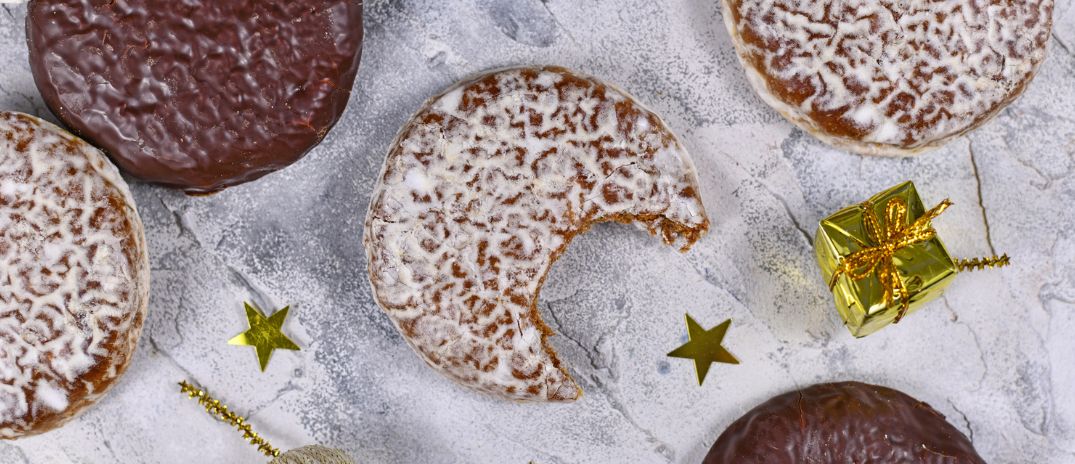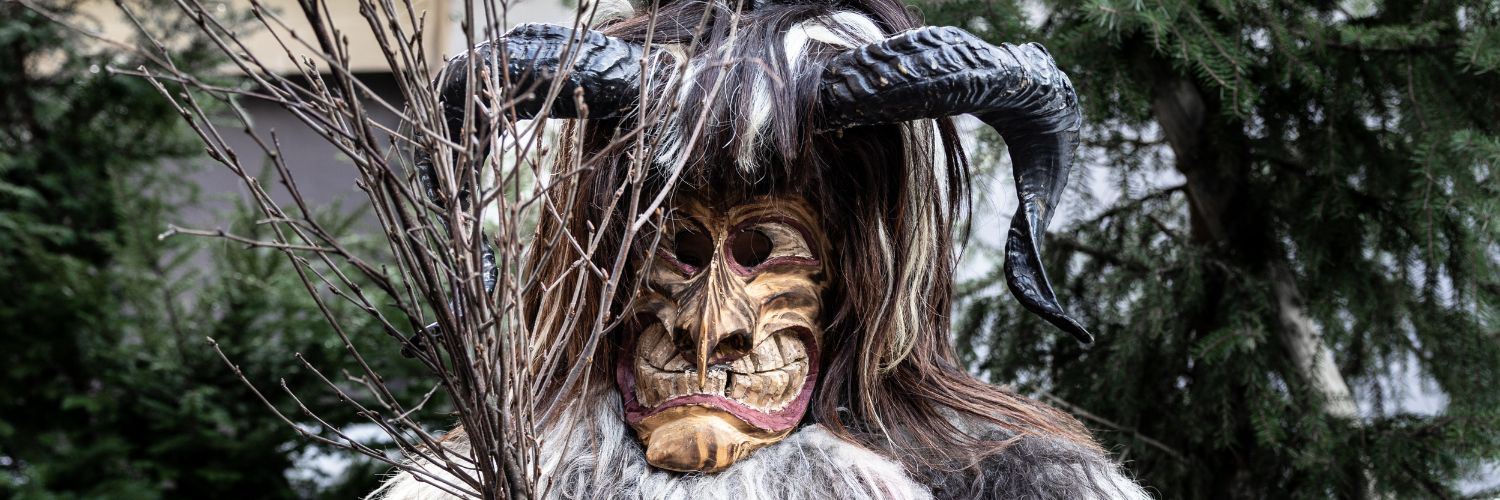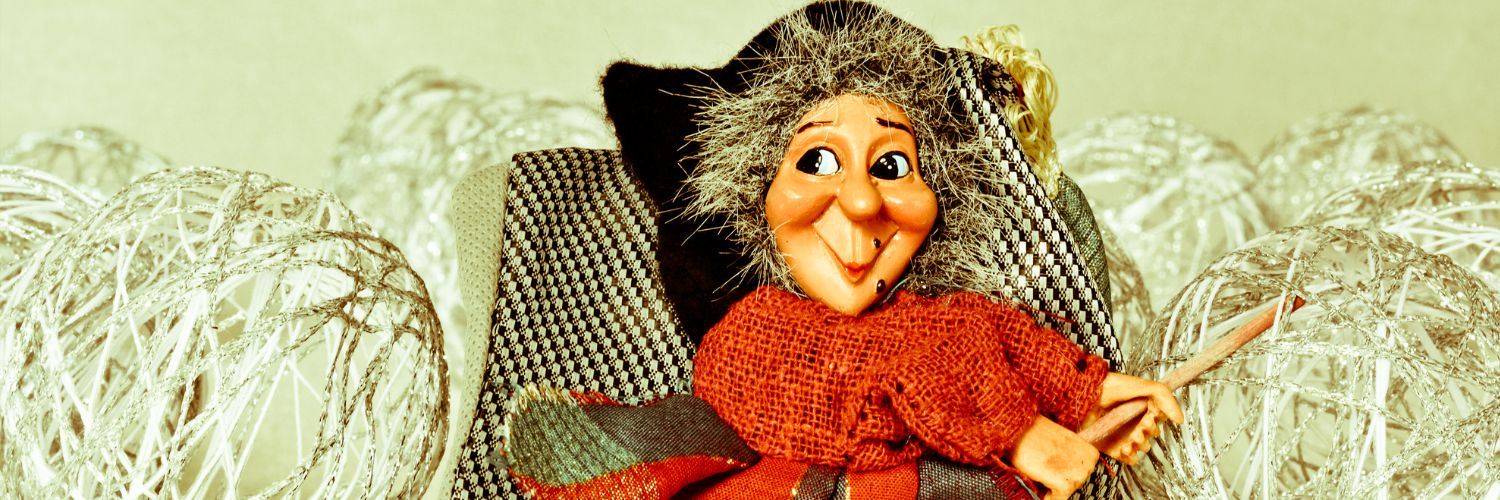Christmas Stollen Bread, Lebkuchen and German Mulled Wine
During the last couple of weeks, we did some mental traveling around Europe and got acquainted with the funniest, weirdest, and most heartfelt Christmas holiday traditions, such as Tió de Nadal in Catalonia, la Befana in Italy, and Krampus from Austria. Our last stop will be Germany, where besides knowing how to have a great time, people seem to know how to fill their bellies while spending time at Christmas Markets!
The Christmas Stollen Bread
It is of utmost importance to know that this is not just a Christmas Market thing. If you are spending time in Germany between November and the end of December, you should absolutely show up at the house of your friends or family with a stollen. It should be a written law but it’s not, so we are telling you now: Stollen Bread is a staple during the holidays.
This decadent bread is adorned with candied fruit peel, nuts, spices, and raisins soaked in spirits, creating a fusion reminiscent of fruitcake and hot cross buns. In the realm of German Christmas culinary customs, stollen holds a prominent position.
The history of stollen, like many German Christmas practices, is intricately tied to Christianity. The distinctive rolled shape of the loaf/cake is said to represent the Christ child swaddled in a blanket.
In its original form, stollen comprised of flour, yeast, a bit of oil, and water. However, lacking butter and sweet components such as raisins, candied orange peel, candied lemon peel, and almonds, the early stollen wasn't the sweet delight we cherish today.
Over time, bakers gained permission to incorporate butter (thanks to the Vatican rescinding a butter prohibition) and introduce other sweet ingredients. These changes continued to shape the final product we have come to love, a tradition that has endured since the 20th century.
My first encounter with stollen was during a rainy late November afternoon in Münich. I had been eyeing it at different bakeries for weeks beforehand, but not being of German nationality (only of German descent) I had no idea what it was, just that I had to have a taste. I imagined it would be similar to the Italian Panettone, and to some extent I was right but it has its own distinct taste and texture, as I would find out later.
I have been invited to a friendly dinner and my sneaky sweet tooth brain decided that was the perfect occasion to arrive with some dessert, so I ran to the nearest bakery, snatched the last Stollen of the day, and sat through dinner waiting to finally take a bite. We paired the sollen with some very light white wine and looked out at the falling raindrops from the comfort of the warm apartment.
Tip: Stay at Grafschaft Bentheim holiday park and visit Uelsen. Stop by one of the many yummy bakeries such as Landbäckerei Wintering where you will 100% find some freshly baked Stollen.
Lebkuchen - Ginger Bread Cookies like you have never tasted before

There are gingerbread cookies and then there are the Lebkuchen, small pieces of spicy, soft heaven, just ideal to munch on during a Christmas Market outing.
The German Christmas custom of Lebkuchen has its origins traced back to the city of Nürnberg. The expansive forests surrounding the city served as a rich source of honey, a crucial component in lebkuchen. Moreover, Nuremberg's strategic location at the crossroads of ancient spice trade routes provided their bakers with access to the exotic spices required.
Lebkuchen come in various recipes and adaptations, with variations in the quantity of nuts and honey utilized. Furthermore, there are even diverse versions tailored to the intended purpose of the Lebkuchen.
While the texture may not be universally favored due to its dense and hard nature, giant lebkuchen hearts are a prominent feature at German Christmas Markets (Weihnachtsmarkt). Adorned with phrases like "Ich liebe dich" (I love you), "Frohes Fest" (Happy Holidays), and "Fröhliche Weihnachten" (Merry Christmas), these oversized treats serve as wonderful gifts for loved ones back home.
My first German Lebkuchen story stems from a place deep inside me I am not proud of: my stubbornness. My brother has been living and thriving in the “grandmotherland” for a long time now (our grandmother was German) and he has been trying to get me to try German Lebkuchen for years. Don’t get me wrong, I like gingerbread cookies as much as the next person but I could not imagine what was so special about Lebkuchen, and one fine day I finally gave in and my life changed for the better. The taste, the texture, the candied fruits in some of them, the crunchy outer layer…it is Christmas in the shape of a cookie and I can’t believe I have been so thickheaded for such a long time! It was a religious experience akin to the time I tried Scottish sea salt and caramel fudge…
Tip: You can discover Lebkuchen and other secrets of Bavaria by staying at Ferienwohnung am Rosengarten in Füssen. It is a sleepy vacation town next to the most beautiful crystal-clear lakes, very close to Münich and even the famous Neuschwanstein Castle.
Glühwein, the Perfect Mulled Wine

Before getting into the history of Glühwein and such, I have to share the following: I recently saw a video of a woman stating that during Christmas, glühwein and mulled wine, in general, is basically a soft drink and I could not agree more! She also said that if you drink something during the holidays it has 0 calories because it’s a drink and since then I have lived in this happy state of delusion and have chosen to blindly believe her!
Dating back to at least 1420 in Germany, this heated wine concoction has a rich history. The evidence lies in the unearthing of a Glühwein tankard believed to have been owned by Count John IV of Katzenelnbogen. As a German nobleman and the pioneer cultivator of Riesling grapes, Count John IV played a significant role in the beverage's early origins.
In my opinion, Christmas simply lacks that essential touch without a steaming mug of Glühwein. It is the ingredient that gives the holiday its…kick, so to say, This traditional German Christmas beverage is a mulled wine typically crafted from red wine and an array of mulling spices. However, at most Christmas markets, you'll frequently encounter variations made with white wine and non-alcoholic alternatives known as "Kinderpunsch."
Furthermore, when enjoying Glühwein at Christmas markets, it's customary to pay a deposit for the themed mug, which can be refunded upon return (though, truth be told, some may find a permanent place in your home). Usually, a couple of glasses are manageable before the inevitable stomach ache sets in from the sugar content.
Whether you're yearning for the flavor of Christmas or aiming to share a slice of German Christmas tradition with friends and family back home, Glühwein is also available in glass bottles at most grocery stores throughout Germany, allowing you to reheat it in the comfort of your own home.
Tip: If you have one chance to do so, drink glühwein outside, at a Christmas Market, or a designated wine stand. To make the most out of the experience, stay in the Rhineland region of Germany, for example at Gerolstein, where you will have the best chance of getting your hands on the best quality wine and glühwine.

 Emily Williams
Emily Williams
The perfect holiday in Friuli-Venezia Giulia - We spent our vacation on a houseboat!
As the first signs of summer descended upon us, my wanderlust-filled heart yearned for adventure, and what better way to satisfy it than by embarking on a journey to the enchanting region of Friuli Venezia Giulia in northeastern Italy? With its stunning landscapes, rich cultural heritage, and mouthwatering cuisine, Friuli Venezia Giulia promised a summer holiday like no other, and it did not disappoint.
Read more
 Emily Williams
Emily Williams
Unveiling the Mysteries of Krampus: Austria's Unique Christmas Tradition
As the holiday season descends upon Austria, the air is filled with the sweet scent of gingerbread and the joyful melodies of carolers. However, amidst the festive cheer, there lurks a shadowy figure, a counterpart to the jolly Santa Claus: The Krampus.
Read more
 Emily Williams
Emily Williams
Meet La Befana - Discover Italy's Epiphany Tradition
In the second article about European traditions about and around Christmas time, we will get closely acquainted with an Italian witch who brings presents and joy, instead of the usual…you know, more evil connotations of the word.
Read more